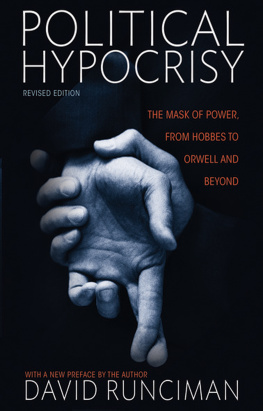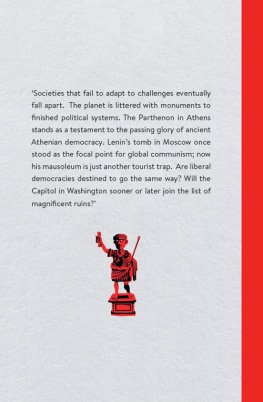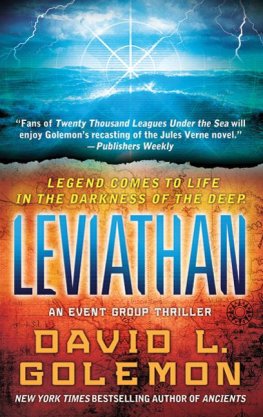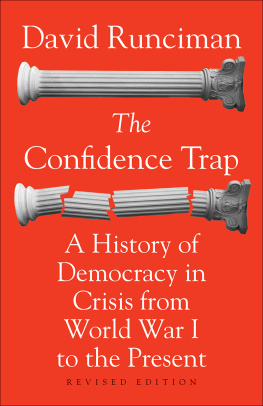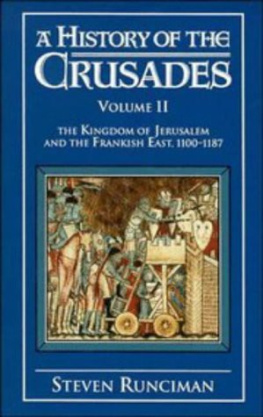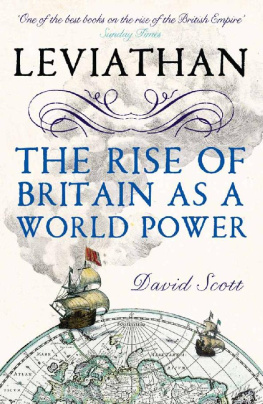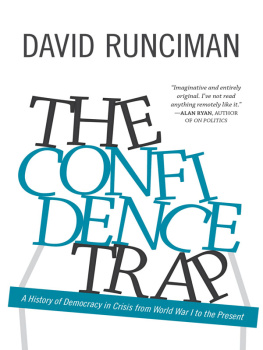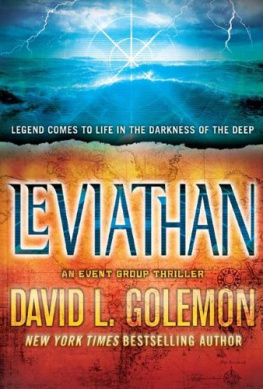David Runciman - Confronting Leviathan
Here you can read online David Runciman - Confronting Leviathan full text of the book (entire story) in english for free. Download pdf and epub, get meaning, cover and reviews about this ebook. year: 2021, publisher: Profile, genre: Politics. Description of the work, (preface) as well as reviews are available. Best literature library LitArk.com created for fans of good reading and offers a wide selection of genres:
Romance novel
Science fiction
Adventure
Detective
Science
History
Home and family
Prose
Art
Politics
Computer
Non-fiction
Religion
Business
Children
Humor
Choose a favorite category and find really read worthwhile books. Enjoy immersion in the world of imagination, feel the emotions of the characters or learn something new for yourself, make an fascinating discovery.

- Book:Confronting Leviathan
- Author:
- Publisher:Profile
- Genre:
- Year:2021
- Rating:5 / 5
- Favourites:Add to favourites
- Your mark:
- 100
- 1
- 2
- 3
- 4
- 5
Confronting Leviathan: summary, description and annotation
We offer to read an annotation, description, summary or preface (depends on what the author of the book "Confronting Leviathan" wrote himself). If you haven't found the necessary information about the book — write in the comments, we will try to find it.
Confronting Leviathan — read online for free the complete book (whole text) full work
Below is the text of the book, divided by pages. System saving the place of the last page read, allows you to conveniently read the book "Confronting Leviathan" online for free, without having to search again every time where you left off. Put a bookmark, and you can go to the page where you finished reading at any time.
Font size:
Interval:
Bookmark:
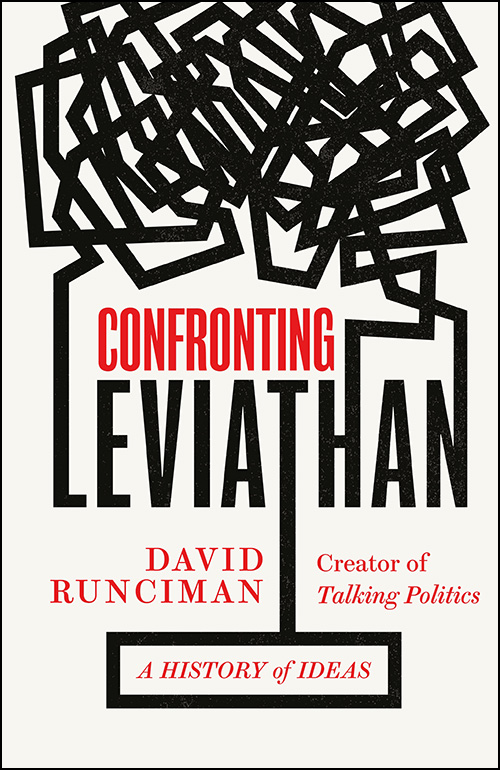
CONFRONTING LEVIATHAN
ALSO BY DAVID RUNCIMAN
Where Power Stops
How Democracy Ends
Political Hypocrisy
The Confidence Trap
Politics
A History of Ideas
DAVID RUNCIMAN

First published in Great Britain in 2021 by
Profile Books Ltd
29 Cloth Fair
London
EC1A 7JQ
www.profilebooks.com
In association with

Copyright David Runciman, 2021
1 3 5 7 9 10 8 6 4 2
Typeset in Dante by MacGuru Ltd
Printed and bound in Great Britain by
Clays Ltd, Elcograf S.p.A.
The moral right of the author has been asserted.
All rights reserved. Without limiting the rights under copyright reserved above, no part of this publication may be reproduced, stored or introduced into a retrieval system, or transmitted, in any form or by any means (electronic, mechanical, photocopying, recording or otherwise), without the prior written permission of both the copyright owner and the publisher of this book.
A CIP catalogue record for this book is available from the British Library.
ISBN 978 1 78816 782 6
eISBN 978 1 78283 838 8
This book is based on a series of talks I gave in the spring and early summer of 2020. That was the time when the UK, like much of the rest of the world, was under strict lockdown. Schools and universities were shut, most people were confined to their homes and a lot of us had time on our hands. The talks were put out as part of the Talking Politics podcast, which I have been hosting since 2016. I hoped to do two things: first, to offer some fresh thinking for politics students and others who were cut off from their usual places of learning; second, to try to relate the history of ideas to the big political themes thrown up by the pandemic. Being under lockdown is a singular political experience. We were being coerced for our own safety. We were being told to give up our freedoms in order to save lives. Never having been through a pandemic before, the starkness of these choices was a novelty for many of us. But I also felt that they were very familiar from key pieces of writing about politics over the past four centuries. In this book I identify twelve such pieces of writing and try to explain what they meant in their own time and what they might mean for us now.
The central organising theme is the idea of the modern state. I explain in the first chapter what I understand by this idea, where it came from and how its origins connect to many of the dilemmas we are facing today. Each of the chapters that follows can be read as a separate account in its own right, but together they form a single story, which explores what happened to the idea of the modern state from the middle of the seventeenth century to the end of the twentieth. It takes in wars and revolutions, the rise and fall of empires, the spread of democracy and the failure of communism, as well as feminist and post-colonial critiques. Almost everything about politics over the last four hundred years has changed beyond recognition, and yet the central puzzles of power, leadership, accountability and liberty remain. To be a citizen of a modern state in the early twenty-first century is to enjoy extraordinary advantages and to face unprecedented challenges. At the same time, it is to come face to face with the core paradox of modern politics: is the state that we built to keep us safe going to be our saviour or our destroyer? Could it somehow be both?
I have tried to retain the conversational style of the original talks as far as possible. I wanted to avoid getting bogged down in academic debates and have steered clear of technical language. This is a personal take on these classic texts, and it is very much in my own words. I have added a few quotations so we have some of the authors own words too, which was not possible in the talks (when I was trying to speak as far as I could without referring to notes). Each chapter has a short biographical sketch of the author in question and the book ends with suggestions for further reading, listening and watching. There is a wealth of excellent material out there on all of the people and ideas I discuss in this book. Now that schools and universities are re-opening I am sure that some readers will also be getting alternative takes on these themes. This is not intended to be a definitive account. But I hope that, for anyone interested in the big ideas of modern politics that continue to shape how we all live, this book is a good place to start thinking about what is at stake.
Cambridge
May 2021
Leviathan (1651)

Thomas Hobbes (15881679) was born near Malmesbury in Wiltshire, the son of a poor clergyman. His uncle paid for him to go to Oxford as an undergraduate, where Hobbes complained about not being allowed to study mathematics. Instead, he learned the classics, and learned to dislike them. He subsequently went to work as a tutor for the wealthy Cavendish family in Derbyshire and he remained with the family for most of the rest of his life. He produced three versions of his political philosophy during the turbulent period of the English Civil War: Elements of Law in 1640 (which was a privately circulated pamphlet), De Cive in 1642 and Leviathan in 1651. His core political thinking remained broadly consistent throughout these three works, but its implications varied with the changing political circumstances. The Elements was strongly Royalist, De Cive and Leviathan somewhat less so. After the restoration of the monarchy he wrote a history of the conflict called Behemoth, which was very critical of the parliamentarians. It was only published posthumously. He also wrote widely on mathematics, optics, physics and the law, and he translated Homers Odyssey and Iliad into English verse. He remained prolific into his old age, despite having the shaking palsy (probably Parkinsons disease). He died a week after suffering a stroke, and there was some controversy, given his reputation for atheism, about whether he took Holy Communion before the end. He never married.
***
Why begin with Thomas Hobbes and Leviathan? Why start in 1651? After all, the history of ideas goes back much further than that. Many of the concepts that we still use to organise our political life have their origins in the ancient world, with philosophers like Plato and Aristotle, and with ideas such as democracy, justice and law. That is one place we could begin. But I want to start a lot later, and I want to start with Hobbes for two reasons.
First, because Leviathan is simply such an amazing piece of writing. There really isnt another book like it. It feels like a jolt in the history of ideas. It has some claims to be the most rational book ever written about politics, but it is also slightly mad, and Hobbes may have been a little bit mad when he wrote it. He produced it as a relatively old man by the standards of the time (he was sixty-three when it was published). Hed been dangerously ill just beforehand and had nearly died. He may still have been suffering from the after-effects of what used to be called brain fever during its composition.
Font size:
Interval:
Bookmark:
Similar books «Confronting Leviathan»
Look at similar books to Confronting Leviathan. We have selected literature similar in name and meaning in the hope of providing readers with more options to find new, interesting, not yet read works.
Discussion, reviews of the book Confronting Leviathan and just readers' own opinions. Leave your comments, write what you think about the work, its meaning or the main characters. Specify what exactly you liked and what you didn't like, and why you think so.

